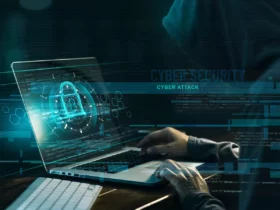Another group report says kids who play unpleasant PC games are more disposed to ill will yet not wrongdoing. Whether or not ruthless PC games destructively influence youths is an intensely addressed one. Likewise, not just between news sources and clinical subject matter experts. It’s furthermore an unfriendly point among specialists who deal with adolescents’ clinical issues.
The fact of the matter is obvious enough that it induced the American Academy of Pediatrics (AAP) to give a proposition last month about adolescents watching fierce movies and playing horrendous PC games. The report’s makers communicated they are puzzled by security from recognizing focuses on that interface violence to the PC games similarly as the shortfall of movement on the issue.
“Even though there is the wide coherent arrangement that virtual viciousness increases intense considerations, feelings, and practices, there has been a negligible public movement to help with directing children’s receptiveness to it,” the makers made. Scrutinize more: Children with mental irregularity bound to cultivate PC game propensity »
A group report conveyed in August 2015 by the American Psychological Association (APA) shut there’s a positive association with extended antagonism in kids who play awful PC games. Regardless, the group people said it’s sketchy whether that aggression is related to criminal ruthlessness or juvenile offense. The investigation was the first in this field to dissect the extensiveness of past examinations, and to endeavor various ways of managing inspecting the composition.
The data displayed a consistent association between furious PC game use and extensions in intense direct, appreciation, and effect, according to the APA Task Force on Violent Media report. PC game viciousness moreover prompts reduces on the side of social lead, compassion, and affectability to aggression, the group added.
Analysts have researched the usage of horrible PC games for more than 20 years, yet group chief Mark Appelbaum, Ph.D., said, “There is incredibly limited investigation addressing whether unpleasant PC games cause people to complete showings of criminal viciousness.”
“In any case, the association between violence in PC games and extended antagonism in players is one of the most considered and best got comfortable the field,” Appelbaum, a mind science teacher at the University of California at San Diego, said in a public assertion. The APA report continued to say that no single peril factor dependably drives a person to act strongly or viciously, yet rather it is an assortment of danger factors that prompts the powerful or savage direct.
Dr. Vic Strasburg, perceived instructor of pediatrics emeritus at the University Of New Mexico School Of Medicine, said it goes farther than wild PC games. “I’ve treated a couple of school shooters and my most reasonable assessment is that these kids have four factors that apply,” Strasburger told Healthline. “One: They’ve been abused or irritated. Two: They have mental unsteadiness. Three: They are socially disengaged. Additionally, four: They play harsh PC games.”
The APA report was gone seven months sometime later by another survey that focused in on kids in Europe. Experts at Columbia University’s Mailman School of Public Health disseminated their revelations in the journal Social Psychiatry and Psychiatric Epidemiology. The gathering of 13 experts looked at the PC game playing affinities for more than 3,000 youths across Europe in 2010. They wrapped up adolescents who played something like five hours of games seven days had fewer mental issues than understudies who didn’t play the games.
The understudies’ teachers moreover assessed the PC game players as better understudies. “I think what we’re seeing here is the advancement of gaming in present-day culture. “It’s as of now not that kids who play a lot of PC games are the isolated, nerd, astute kids. Try not to see any relationship with antagonistic mental health results.”
Another survey that was circulated in October 2015 gathered that watchmen were a huge part in choosing how long adolescents spend playing savage PC games. Investigators at Iowa State University used a web-based audit of the two gatekeepers and youths developed 8 to 12 for their choices. They said posterity of “restrictive” watchmen who set firm standards contributed less energy playing unpleasant PC games. Also, the posterity of “warm” watchmen who show support through affection similarly played fewer games like computer pg game. In any case, the posterity of “fretful/energetic” watchmen who are routinely overprotective contributed more energy playing PC games.







